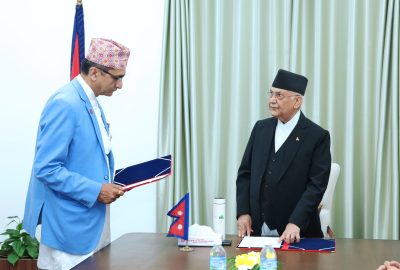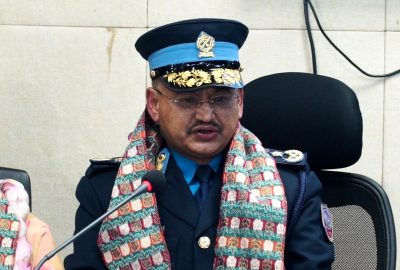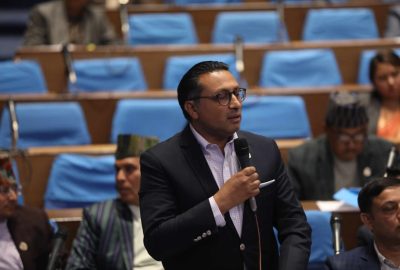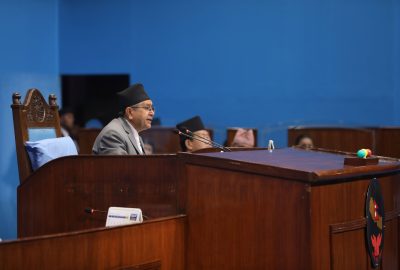Majhi community celebrate Ladi festival first time

Parbat: Majhi community people residing along the river banks at Maldhunga in Parbat and Baglung have observed extinct Ladipuja (river festival) lately. With the construction of roads and bridges over the rivers, main occupation of Majhi community – fishing and boating saw crisis which also caused gradual disappearance of their culture of offering worship to the river.
It may be noted that Ladipuja had not been so far marked in Kushma municipality-1 of Parbat district. The problems brought out by armed conflict caused discontinuity of the indigenous cultural practice. The minority Majhi community had been perpetuating their indigenous occupation of fishing and boating for life sustenance since time immemorial. It is noted that the riverside inhabitants have been accustomed to offer worship to the rivers as the source of their livelihood.
There has been a belief that offering worship to the river (Ladipuja) would bring no risks in their ancestral boating and fishing profession. The rivers mostly in the rainy seasons have been causing loss of life and properties in several areas. In order to prevent human, physical and economic loss, the river pooja has been performed since long, said Bal Bahadur Majhi, a local.
During the Ladi pooja, the indigenous Majhi people were clad with their cultural attire (Daura-Suruwal, Gunyu-Choli and Feta Waist Coat). He highlighted the importance of sensitizing about the special practice within their community people.
The Majhi community people have demanded the government make efforts to preserve their indigenous practice of offering worship to the rivers as the national festival. Inaugurating the programme, Kushma municipality mayor Ramchandra Joshi pledged to make necessary efforts to resolve the problems facing the Majhi community people. He said the municipality would put its efforts to make arrangement for alternative residence and profession focusing ion the Majhi people. Likewise, municipality deputy mayor Swasthani Rijal also expressed the commitment to engage the indigenous Majhi people in alternative works for their sustainable livelihood. –



